
The 8th Conference on Practice and Research for Social Service Excellence
The theme of the coming conference is Facilitating Collaboration between Practice and Research for Service Excellence. With an overseas keynote speaker’s sharing, the recent development experiences of research units and practice research capacity among local agencies , and the ‘human library’ which shares the working experiences of social workers and researchers, the conference allows participants to understand how the concept of practice research is actually promoted and operated in the organization, and ultimately facilitates effective communication and cooperation between social workers and researchers, so that practice research can help service development.
This year we are glad to have a keynote speech by Dr. Lars Uggerhøj, Full Professor of Social Work at Aalborg University, Denmark. He has been engaged in social work for 13 years. His main research focuses include Service User Involvement and Experience and Practice Research in Social Work. Dr. Uggerhøj is committed to promoting practice research in social service sector and currently leads the Practice Research and Service User Perspectives’ research network at Aalborg University, and the convener of The Special Interest Group in Practice Research under the European Social Work Research Association, and Nordic FORSA network of Practice Research. He also served as visiting scholar at Boston University, USA, University of Helsinki University, Finland, currently at Lincoln University, UK.
Dr. Uggerhøj will also hold a half-day post-conference workshop with the theme of Participatory Practice Research – A Way to Establish Joint Learning Processes Between Researchers, Practitioners and Service Users in Social Work. Through activities and case studies, the workshop is to enable participants to understand different approaches of practice research, and to establish practice research processes in the organisation with the participations of social workers, researchers and service users for learning and service development.
$280 HKCSS member / $330 Non-member (on or before February 22)
* Special Offer: for participants who are enrolling conference & workshop
$430 HKCSS member / $530 Non-member (on or before February 22)
$580 HKCSS member / $680 Non-member (on or before February 22)
* Attention:No online payment.
* For the avoidance of doubt, we do not accept cash. Please forgive us for causing any inconveniences.
(Phone) 2864 2975 (Ms Lam)
| 09:40 | Registration | |
| 10:00 | Welcome Speech | |
| 10:20 | Keynote Speech
| |
| 11:20 | Coffee Break | |
| 11:30 | Case Sharin The Journey of Organization to Practice Research: Strategy, Experience and Lesson Learnt |
|
Community of Practice: Creating Organizational Capacity and Culture for Service Evaluation Ms. Yvonne YU
Hong Kong Red Cross |
||
Back to the Basic: Value-based Approach to Practice Research in NGOMr. POK Fook Sun
Fu Hong Society |
||
“If you can’t measure it, you can’t manage it”: Management-led Approach to Impact Measurement Ms. Monique YEUNG
Ms. Neda NG Mr. Michael WONG Mother’s Choice |
||
| 13:00 | Lunch | |
| 14:15 | Registration | |
| 14:30 | Human Library
| |
The Pacemaker on the Course of Practice ResearchMr. KWONG Ka Shi
Mr. Tom MA The Salvation Army |
||
Culture Matters: Organizational Assets That Foster Evidence-based Practice in Social Service AgenciesMr. Dennis CHU
Ms Alice LI Hong Kong Christian Service |
||
Balances Administrative Work and Exercises Practice ResearchMs. Hildy LAW
Social Worker (to be confirmed) Christian Family Service Centre |
||
From Evidence-based Practice to Practice-based Research: An Experience of Practice-Driven Academic-NGO CollaborationMs. Iris LIU
Ms. Jolian CHUI International Social Service (ISS) Hong Kong Branch Dr. Nancy YU
Department of Social and Behavioural Sciences, City University of Hong Kong |
||
| 16:30 | Feedback | |
| 16:45 | Conclusion | |
Topic: Developing Traditional Roles in the Agency - Challenges for Practitioners, Service Users and Researchers When Doing Practice Research
Practice research is a growing and developing approach which is making it possible for researchers, social workers and service users to collaborate and through the collaboration to qualify social work and expand research methodologies altogether. However, establishing new partnerships is not only a bed of roses, it is challenging and provoking as it will entail either new or different roles for all partners. Social workers and service users would also go from being consumers of research to becoming producers of research. In the meanwhile, researchers normally being the ones who manage the research process will become stakeholders co-sharing the leadership too.
To shed light on such situation, the keynote speaker Dr. Lars Uggerhøj will present what practice research is and why it is needed for the learning and development of social work practice. He will present a definition of practice research as well as different approaches to practice research and focus especially on the participatory practice research. Challenges in establishing participatory practice research designs involving researchers, practitioners and service users as stakeholders are also explored and discussed.

Ms. Yvonne YU
Head of Planning and Service Development ,
Planning and Service Development Office,
Hong Kong Red Cross
Topic: An Exploration on Animal Assisted Therapy (AAT) for Clients with Substance Dependence
Community of Practice: Creating Organizational Capacity and Culture for Service Evaluation
Service evaluation is one of the strategic directions of the Hong Kong Red Cross since 2014. Staffs are required to meet the basic standard of evaluation for both regular services and pilot projects. We intend to strengthen staff capacity and practice of service evaluation through mindset change, staff training and system building. At the same time, the agency empowers and supports staff to develop project objectives, design evaluation tools, collect and analyze data through Community of Practice, where staff participation is voluntary and across service units, and professional coaching offered from experienced project manager and researcher.
In five-year time, the agency staffs have better understanding on the importance of service evaluation. Their capacity to write project indicators and evaluation plan also becomes stronger.

Mr. POK Fook SUN
Service Director (Kowloon West)
Fu Hong Society
Topic: Back to the Basic: Value-based Approach to Practice Research in NGO
In the course of the helping process, social workers are obliged to inform service users what the interventions will be, and what changes or outcomes the interventions will result. To date, social workers have to handle piles of irrelevant administrative tasks which render them unable to identify the needs of service users. Not to mention whether interventions can bring results to them. This presentation gives a brief account of how Fu Hong Society has rolled out the following initiatives to carry out Evidence-based Practice in the past four years.
- Explain the reasons and values behind the evidence-based approach in different committees and working groups;
- Establish an effectiveness evaluation mechanism in new projects;
- Encourage all professional colleagues to participate in workshops and try to conduct a program outcome evaluation in their service units;
- Encourage service managers to set concrete objectives and performance indicators in their service units’ annual plan in response to the needs of service users.
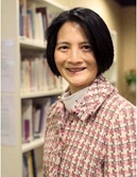
Ms. Monique YEUNG
Advisor
Community Education
Mother’s Choice
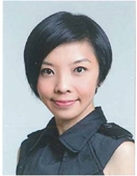
Ms. Neda NG
Manager
Community Education
Mother’s Choice

Mr. Michael WONG
Assistant Manager
Impact Measurement
Mother’s Choice
Topic: “If you can’t measure it, you can’t manage it”: Management-led Approach to Impact Measurement
「Mother’s Choice is a local charity serving the many children without families and pregnant teenagers in Hong Kong. We join hands with our community to give hope and change the life stories of vulnerable girls and babies. Our vision is to see every child in a loving family.
Since 2016, Mother’s Choice has prioritized impact measurement as a central part of its strategic focus. The process of embedding meaningful metrics, and the resulting change management, throughout the organisation was not straightforward. At every step, Mother’s Choice has had to learn and adapt to a new way of data collection to uncover the reality of program effectiveness and impact.
This presentation shares Mother’s Choice journey of discovery, from the perspective of both management and the frontline, in the development and implementation of impact measurement and in using data to meet the changing social needs of Hong Kong.
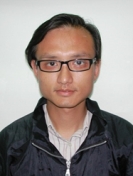
Mr. KWONG Ka Shi
Research Officer
Social Services Department,
The Salvation Army
Hong Kong and Macau Command
INAP

Mr. Tom MA
Service Supervisor – Community Project
Social Services Department,
The Salvation Army
Hong Kong and Macau Command
INAP
Topic: The Pacemaker on the Course of Practice Research
Every marathon is with same distance, but the details of the routes are different. Practical research is quite alike the cycle of marathon, it begins with design and data collection, and results to support service development, and then triggers another cycle of research. Researchers at social service organizations are like pacemakers and responsible for guiding colleagues to maintain steady and specific pacing and enhance their ability to complete the race in their target time. Working together, researchers not only provide timely practical advice to colleagues, but also encourage them to make up their minds to keep up, improve the practice research work culture within the organization, and the determination to achieve the same goal with different stakeholders.

Mr. Dennis CHU
Research and Advocacy Officer
Corporate Development and Research Office
Hong Kong Christian Service
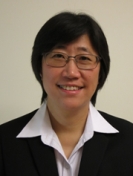
Ms. Alice LI
Service Supervisor
Kwun Tong Happy Teens Club
Hong Kong Christian Service
Topic: Culture Matters: Organizational Assets That Foster Evidence-based Practice in Social Service Agencies
Inheriting the spirit of “social service laboratory,” The Hong Kong Christian Service (HKCS) has been conceiving and promoting innovative service through practice research over the years, and has actively shouldered the mission of advocates to research and data to identify and respond to social needs.
However, in this piece of practice research soil, the organization still needs to cultivate the environment to enable colleagues to pass on the spirit of practice research in service explorations. We will share a story of a first practice research collaboration between social worker and agency researcher to illustrate some of the current strategies and methods used to promote practice research, so as to enable researchers and social workers to continuously enhance their practical research capabilities and motivations, and their sensitivity of identifying problems and solutions in their practices. Methods such as encouraging researcher and social workers initiate in-depth discussions over goals and expectations at early stage of research, establishing common research database reviewing services; promoting literature review so as to formulate the mechanism and service impact of evidence-based research.
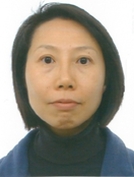
Ms. Hildy LAW
Research Officer
Corporate Affairs Department
Performance Management Unit
Topic: Balances Administrative Work and Exercises Practice Research
Both the social worker and the researcher of the organization need to take up different tasks: on one hand, they need to take into account the daily administrative work, collect and process service data, and on the other hand, they must focus on the service and practical research work. The two are full of workload and time pull, coupled with the different training and job identities of social workers and researchers; it is difficult to conduct practice research on the cooperation between the two.
How to let social workers and researchers reach the "you have me, I have you" under the existing resources, in addition to relying on the two from the different practical research cooperation, you can rely on daily administrative and service data, Make the two have a common understanding of the client. The service data can see the needs of service users, the use of services and changes, and the identification of unmet service needs. Through practice research, social worker and researcher can build the cornerstone for service development.
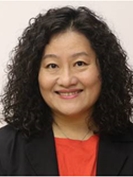
Ms. Iris LIU
Director of Programme (Registered Social Worker)
International Social Service Hong Kong Branch

Ms. Jolian CHUI
Assistant Director of Programme (Registered Social Worker)
International Social Service Hong Kong Branch

Ms. Nancy YU
Associate Professor
Department of Social and Behavioural Sciences
City University of Hong Kong
Topic: From Evidence-based Practice to Practice-based Research: An Experience of Practice-Driven Academic-NGO Collaboration
Service users have been satisfied with our work in the assessment, but it does not help much in facilitating social workers to learn about the subtle and objective changes of the service users after the service. We believe that we need to test with certain empirical evidence in order to get true and helpful references for service improvement. Thus we started a practice research collaborating with scholars. We had to first overcome the team’s dilemma: a group from the service unit, and the other group from university. In addition, we took the challenge of using a Randomized Controlled Trial, to randomly allocate the service users that are not easily recruited into different groups, and lost a few for various reasons.
Our first practice research process was full of tears, but the experience allowed us to understand our needs for practice research, as well as the procedures and techniques of conducting practice research. Three years later, we led another practice study, with the same team but different experiences: we overcame the problems of team collaborations and utilized the potentials of colleagues in practice research, and finally collected solid evaluation evidence for service development.

